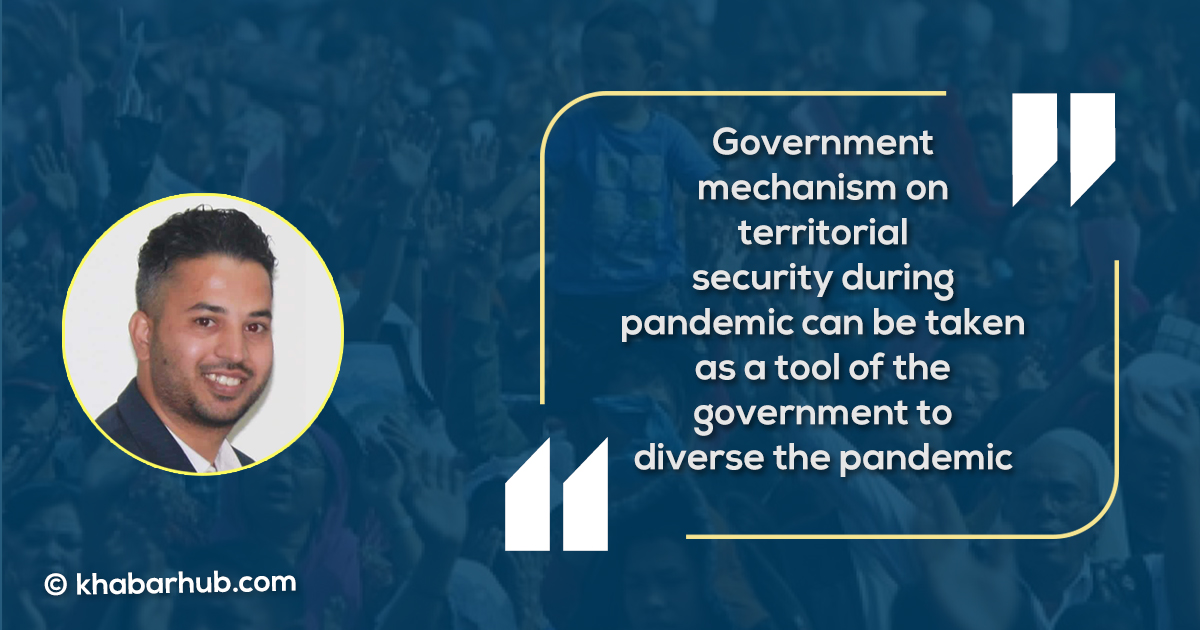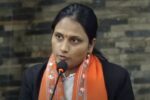Legitimate autonomy to use violence on its people is the sovereign monopoly of the state. But the question is how is it going to be possible in democratic nations or in the other parts of the world?
This is the era of globalization and as Covid-19 has been the phenomenal justification on how global villages are interrelated; the legitimate use of violence doesn’t always mean the use of hard power but the use of force.
Now, what if the state is engaged with soft power to terrorize its people? Can we sense any possibility?
One of the terminologies in the realm of security studies is, ‘state-sponsored terrorism’. We might wonder why the state has to terrorize its own citizen when the right to a peaceful environment is the fundamental human right.
States were obliged to assure all of its citizen’s security. However, we have to think from the other side of the story too, i.e. how is it going to benefit the government and the political elite when people have fear of anything.
Question arises: What is easier? Is it easier to rule terrorized people or sovereign people? The answer is straight; terrorized ones.
Several committees are working in the realm of the disaster from central to the local level. Similarly, in the case of security, there exists a central security committee to the district security committee.
The symbiotic relations of the fear, how it is produced and transmitted is interesting to understand. Let us look at a simple example of Babri Masjid in India; demolition and religious fear among Hindus and Muslims.
Some similar strategy is present in the case of Indo-Pak relations. We often wonder why the Indian establishment and politicians frequently accuse Pakistan as a threat to India’s interest and dignity.
Is it necessary to blame China or North Korea (DPRK) or any Islamic Country for secure and stable America? Why the political master (President Trump) has concluded on making America great again.
Similar goes with the case of Narendra Modi in India. In the case of Nepal, the rise of KP Oli and the anti-Indian rhetoric symbolize the same mentality.
In Nepal, the first case of Covid-19 was reported on 23 January 2020 — a 32-year-old Nepali man returning from Wuhan, China.
With a motto to combat Covid-19, the government of Nepal on March 23, 2020, imposed a nationwide lockdown.
As the fear of Covid-19 rose, the government’s decision to impose a nationwide lockdown was stated to be unsuccessful.
Eventually, with the time, Nepali citizens from every nook and corner realized the government’s insufficient preparedness and immature early strategy of imposing lockdown.
Interestingly, one common sensation among Nepali citizens during the 90 days of lockdown was the psychological terrorization amid Covid-19.
The complete nationwide lockdown was slowly getting weak as people were not satisfied with its modality and outcome.
Result: People started to come out from the haunt of the virus and urged the government to change the modality of inhumane lockdown. Accordingly, the government decided to lift lockdown by July 24.
During the nationwide lockdown imposed from March and July, we felt the need for more preparedness and seriousness from the side of government.
However, notwithstanding the weak preparedness, the government tried what they call is their ‘best’ to manage the crisis with the purchase of medical kit, quarantine and self-isolation strategy.
The Committee of the Covid-19 Crisis Management Centre (CCMC) under the chairmanship of Deputy PM and Defense Minister took the sole responsibility of COVID 19 crisis management.
Besides, the government’s priority in research and analysis of psychological mental health care and overall holistic study of the COVID 19 followed by its impact in the Nepalese context is merely real to observe.
Several committees are working in the realm of the disaster from central to the local level. Similarly, in the case of security, there exists a central security committee to the district security committee.
Low to lack of synergy and operability among these line committees has been seen during the Covid-19 pandemic.
Here, the need for the National Security Council (NSC) to revive with a holistic analysis of the COVID-19/post Covid-19 impact and overall management of the crisis has been sensed.
The holistic analysis of the impact of COVID 19 in Nepal was never a priority of the government.
The appointment of Deputy Prime Minister as chairperson of CCMC itself was a huge turn off for the general public.
The purchase of the essential medical kits was the top priority of the CCMC which gained a lot of controversy as all the authorities involved in the purchase were accused of corruption.
Later with these criticisms, the said responsibility was handed over to the Nepali Army. However, it is believed that the Nepal army was misused and blamed for the financial irregularities.
Usually, as per general people’s understanding, the Nepal Army is taken as a protective shield from CIAA (Commission for the Investigation of Abuse of Authority) in Nepali polity.
Now following this incident, the cold relations between DPM and Nepali Army Chief surfaced.
It should be noted that the purchase of medical kits could be done solely by the Department of Health and Population.
However, due to excessive political interest as well as self-interest, the process went a long way and ended up with the engagement of the military in non-military activities.
According to the Health Sector Emergency Response Plan (May 2020), the government’s plan in combating COVID 19 is categorized into four levels.
Level one: Procurement, developing and strengthening public health mechanisms for contract tracing, case investigation, quarantine, risk communication.
Level two: Declaring public health emergency as per the Public Health Service Act 2075 BS (Clause 48.8).
Level three: Community screening, rapid RDT testing, utilizing private hospitals.
Level four: Declaring disaster as per the Disaster Risk Reduction and Management Act, 2074 BS (Clauses 32.1)
Now analyzing it with the present situation, we can see that it lies somewhere in between the level one and two.
The dilemma among the key stakeholders on how to combat pandemic was responsible for the inhumane situation of the citizens was saddening on the other side.
Surprisingly, the central government has yet not declared a health emergency, but the province and few local levels can be seen in a mentality of declaring health emergencies.
Besides, the government’s priority in research and analysis of psychological mental health care and overall holistic study of the COVID 19 followed by its impact in the Nepalese context is merely real to observe.
Similarly, the district administration offices of the districts Kathmandu, Lalitpur, Bhaktapur, and throughout the country have imposed restrictions on mobility, public gatherings, and many more from mid of August.
This has to be done certainly on account of the unpredicted rise in the Covid-19 cases and the human casualty rate.
Here is a simple thing anyone can argue on: Whom to blame? The government of the public or is it natural? It might be simply a reflection of ‘no lockdown-no corona’ syndrome.
The planning of the government is/was only focused on the screening of the cases but not with other alternative preventive measures.
The understanding of the government about nationwide lockdown being an only remedy to combat the virus was one of the responsible factors for the present situation.
The government seems to be confused about how to combat or to defeat Covid-19. They have only focused on the identification of Covid-19 patients and transferring them to the isolation ward.
Except for this, it is hard to find any holistic approaches. The nexus of the pandemic, the ruling party’s conflict (intraparty), and the diversification of the priority of the government during this difficult time can be taken as shocking as well as interesting.
The success story of New Zealand, Japan, Sri-Lanka, etc. in combating the virus is interrelated with dynamic leadership, holistic analysis, preparedness, and the compliance of the citizens.
The government engagement in the border disputes with India, the survival-oriented government of Oli and the intraparty conflict was kind of unappreciated by the people.
The dilemma among the key stakeholders on how to combat pandemic was responsible for the inhumane situation of the citizens was saddening on the other side.
The government focusing on territorial security and updating its political map was an appreciable decision but the time was not appropriate.
Likewise, the government mechanism on territorial security during a pandemic can be taken as a tool of the government to diversify the issue and the concentration of the people. And now, it is already late to reorient the focus of the government in holistic human security.
Nepali folks have amazing creativity to analyze every crisis. The no lockdown-no corona syndrome played a crucial role in intensifying carelessness and Covid-19 cases respectively.
The success story of New Zealand, Japan, Sri-Lanka, etc. in combating the virus is interrelated with dynamic leadership, holistic analysis, preparedness, and the compliance of the citizens.
The misuse of the authority, self-centered political culture, and rule by law, corruption and incompliance of the citizen are some virus of Nepalese society which is more deadly than Covid-19.
Whatsoever let us not lose hope but instead continue wakening the government, fulfilling our social responsibility, and pray for the best.
(With inputs from Nitish Shrestha)








Comment